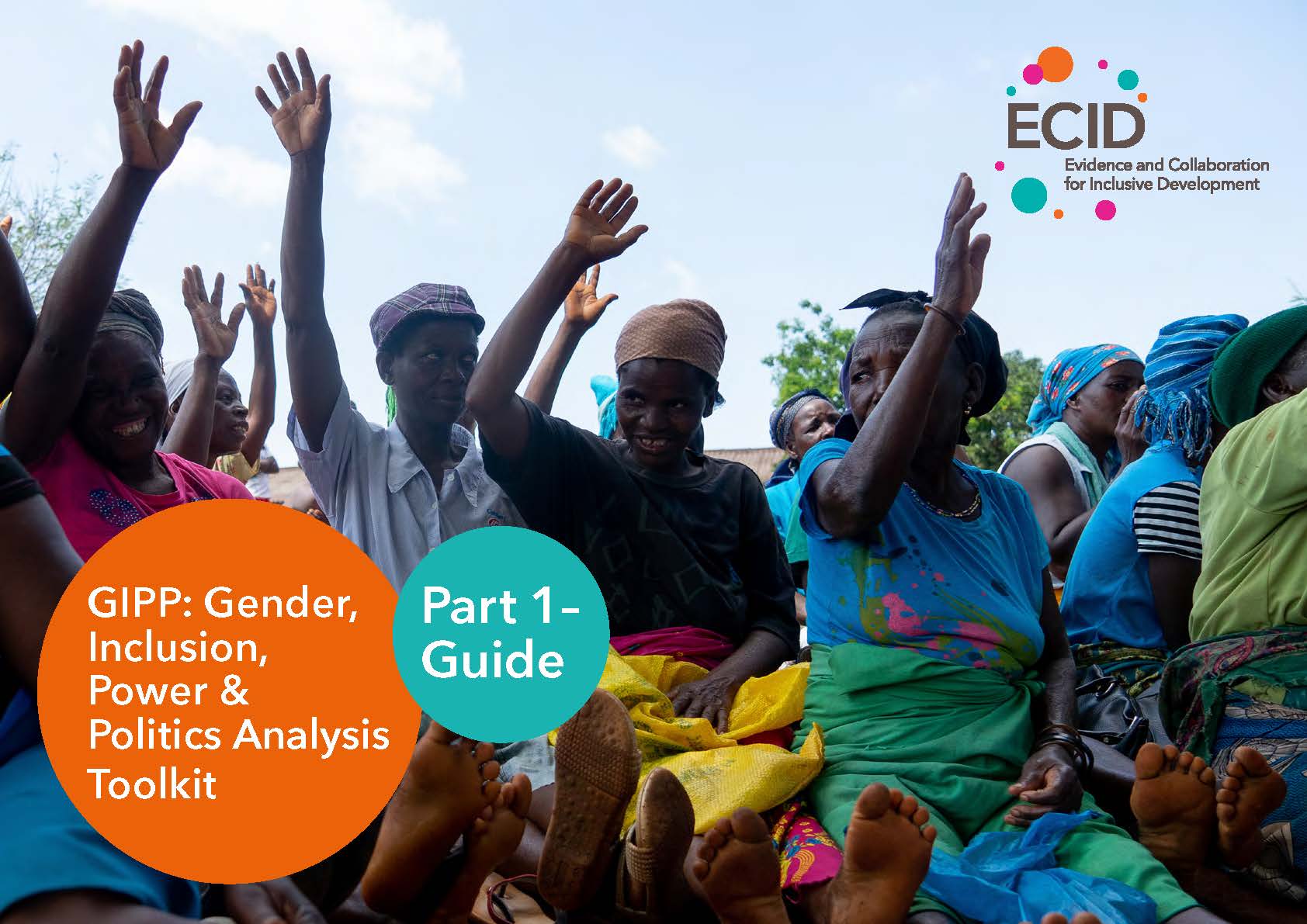
The SDDirect-Christian Aid Gender Inclusion Power and Politics (GIPP) analysis toolkit was developed as part of the UK Aid Connect Evidence and Collaboration for Inclusive Development programme implemented in Nigeria, Myanmar, and Zimbabwe. It integrates traditional Political Economy Analysis (PEA) with Gender Equality and Social Inclusion (GESI) analysis and involves several lines of enquiry including problem identification, contextual analysis, systemic analysis, systems mapping, stakeholder dialogue, power, and exclusion analysis. The GIPP goes beyond the traditional PEA focus on ‘visible’ power to also examine the role of ‘hidden’ and ‘invisible’ power and informal power structures and holders, thereby supporting a more nuanced understanding of why certain groups are marginalised, in what circumstances, and with what level of impact. Unlike some approaches which focus primarily on problem identification, the GIPP is also designed to capture spaces and circumstances in which historically marginalised groups hold agency, power, and resilience, and to identify opportunities for harnessing this power to create change.
The GIPP is intended to be embedded into programming rather than a one-off exercise, so as to identify entry points, emerging risks, and support adaptation on an ongoing basis (something even more critical during COVID-19). It is country-led, with local teams and partners owning the analysis process and women and other marginalised and minoritised groups represented as informants and analysts.
Part 1 of the GIPP toolkit introduces the GIPP approach and provides a broad outline of what a complete GIPP analysis might look like during the design phase of a programme. Part 2 provides a complete toolkit with participatory approaches and tools to be used at appropriate points during programme design and implementation.